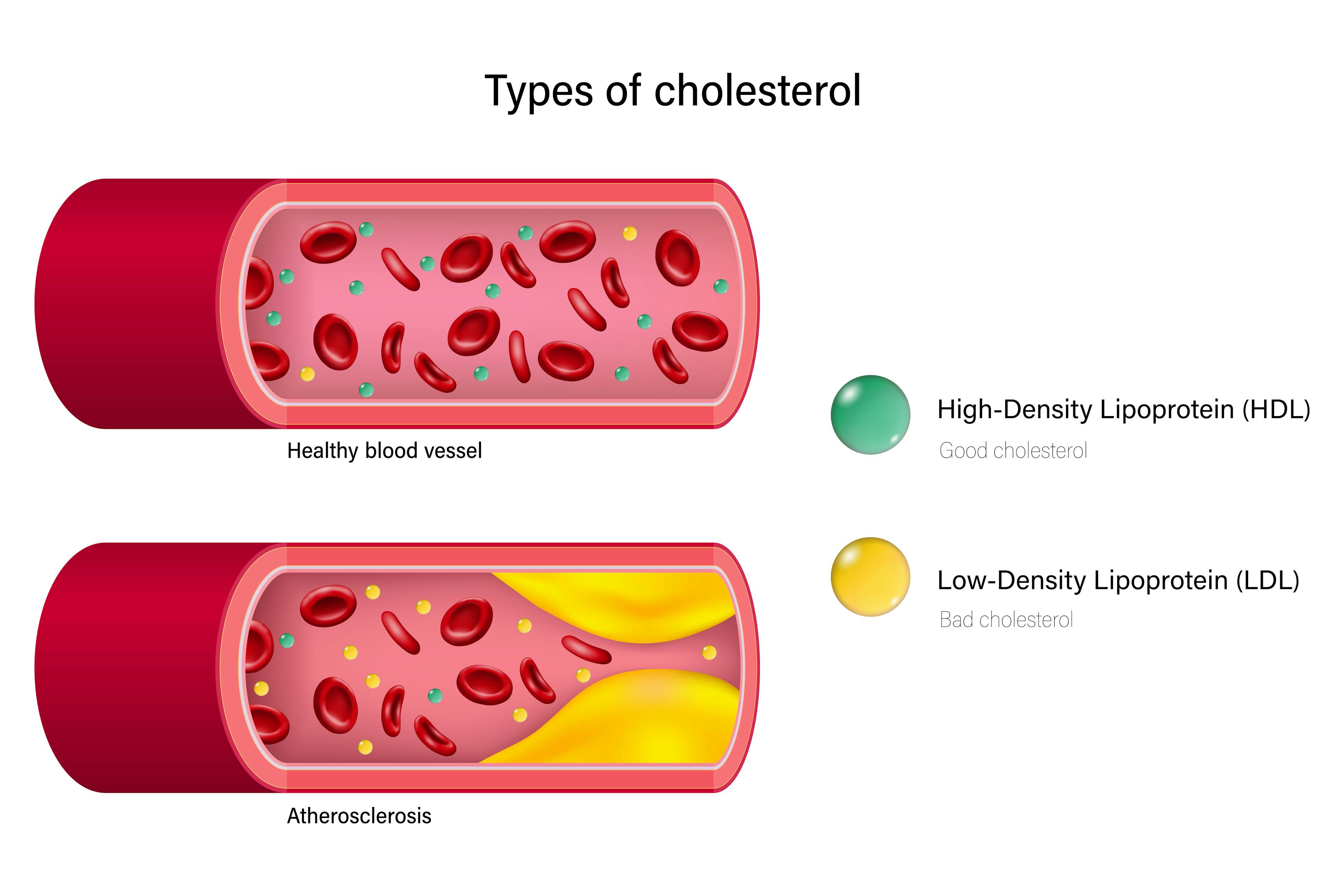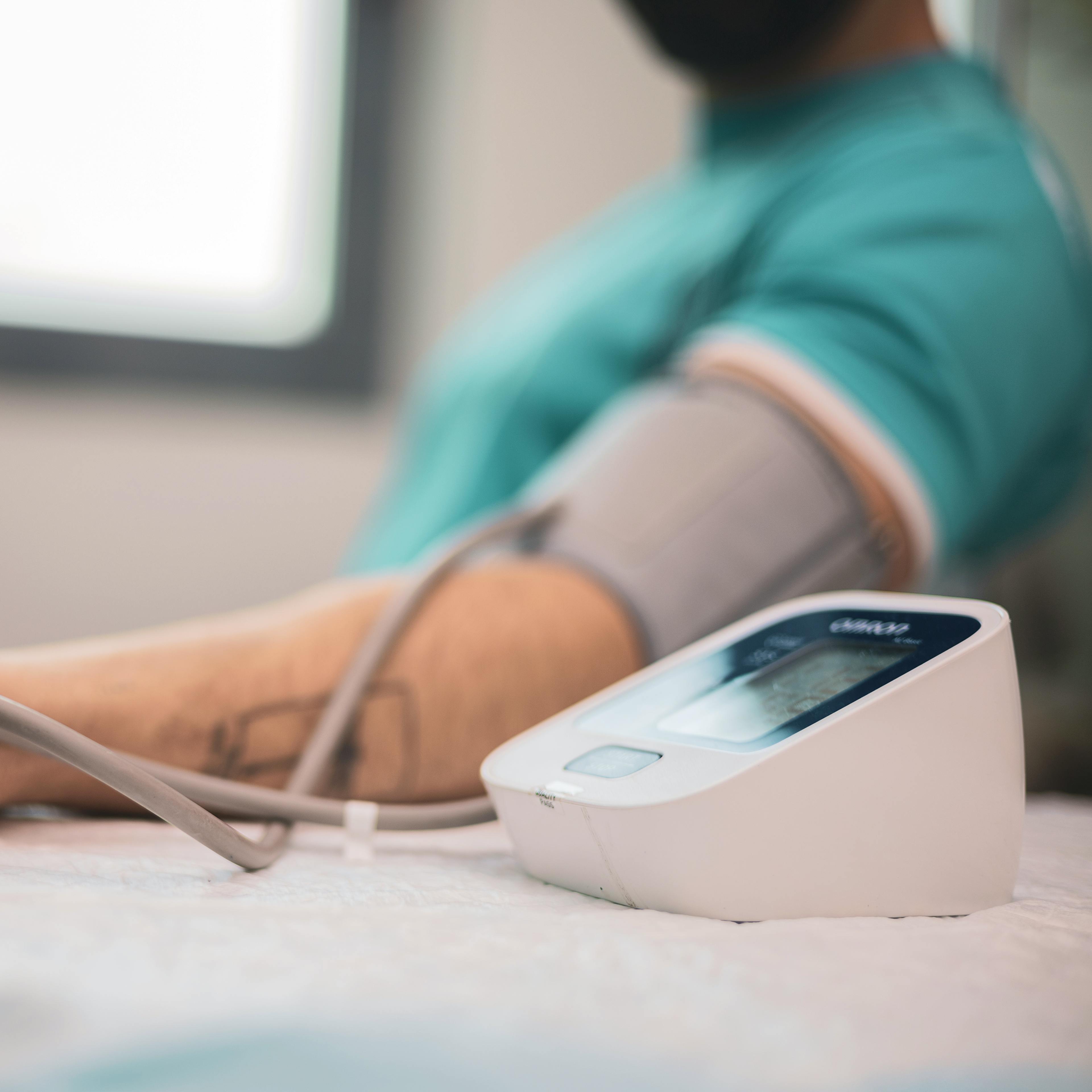As of 2024, approximately 1 in 10 American adults live with high cholesterol, a widespread health issue impacting millions globally. Often referred to as a "silent condition," high cholesterol typically presents no symptom. Left unmanaged, it can significantly increase the risk of heart disease, stroke, and other cardiovascular complications, making it a critical factor in maintaining long-term health.
What is High Cholesterol
High cholesterol is a condition where the level of cholesterol, a fatty, waxy substance found in your blood, becomes too high. While cholesterol is necessary for building cells and producing hormones, excessive levels could lead to the buildup of plaque in your arteries, making it difficult for blood to flow. These deposits may rupture unexpectedly, leading to the formation of a clot that could block blood flow and result in a heart attack or stroke.

High cholesterol can be genetic, but it is often caused by poor lifestyle choices, making it both preventable and manageable. A healthy diet, frequent exercise, and, when necessary, medication help to lower cholesterol levels.
High Cholesterol Symptoms
Most people with high cholesterol experience no noticeable symptoms, which is why it’s often referred to as a silent condition. In rare cases, extremely high levels of cholesterol may cause physical signs like fatty deposits under the skin (xanthomas) or a gray ring around the cornea (Arcus Senilis).
Routine cholesterol screenings and annual physicals are the most reliable ways to identify high cholesterol early and detect potentially related health issues before they become serious.
High Cholesterol Causes
There are a number of causes of high cholesterol, which often vary widely and involve a combination of genetic, lifestyle, and medical factors:
- Diet: Eating high cholesterol foods, particularly those rich in saturated fats and trans fats, contributes to elevated cholesterol levels.
- Lifestyle: Smoking, lack of physical activity, and excessive alcohol intake frequently worsen cholesterol imbalance.
- Medical Conditions: Obesity, diabetes, and hypothyroidism are common contributors to high cholesterol.
- Genetics: Inherited conditions like familial hypercholesterolemia can result in persistently high cholesterol levels, regardless of diet or lifestyle.
Types of High Cholesterol
LDL Cholesterol
Often called “bad” cholesterol, high LDL cholesterol can lead to plaque buildup in the arteries, narrowing them and restricting blood flow. This increases the risk of heart disease, stroke, and other cardiovascular problems.
HDL Cholesterol
High levels of HDL cholesterol are beneficial as this "good" cholesterol helps remove excess cholesterol from the bloodstream, transporting it to the liver for elimination. However, HDL levels alone cannot counteract the risks posed by high LDL cholesterol.
Cholesterol Level Chart
For effective management, knowing your cholesterol numbers is important:
- Total cholesterol: Less than 200 mg/dL is considered ideal.
- LDL cholesterol: Below 100 mg/dL is optimal.
- HDL cholesterol: 60 mg/dL or higher is protective against heart disease.
To better understand your specific cholesterol targets based on individual health factors, we recommend consulting with your healthcare provider.
High Cholesterol Treatments
Cholesterol Medications
High cholesterol medication options include statins, bile acid sequestrants, PCSK9 inhibitors, and more. Statins are commonly prescribed to lower LDL levels by reducing the liver's production of cholesterol. Other medications, such as fibrates and niacin, may be used in specific cases.
Low Fat Diet
Some might be surprised at how beneficial a low-fat diet rich in fruits, vegetables, whole grains, and lean proteins can be when trying to reduce cholesterol levels. For optimal results, limit foods high in saturated and trans fats, like fried foods and processed snacks.
Exercise
Consider engaging in regular physical activity, as it helps raise HDL cholesterol levels while lowering LDL cholesterol and triglycerides. Aim for at least 30 minutes of moderate exercise, such as walking, jogging, or cycling, most days of the week.
Healthy Lifestyle
Maintaining a healthy weight, avoiding smoking, and managing stress are key components of a heart-healthy lifestyle. Routine checkups, along with these efforts, ensure a proactive approach to cholesterol management.
How to Prevent High Cholesterol
When it comes to prevention, small changes can make a big difference. Start with consistent lifestyle choices that promote your heart health each and every day. Focus on a balanced diet, regular physical activity, and consistent health screenings.
For those with a family history of high cholesterol or other risk factors, working with a healthcare provider that specializes in chronic disease management can help you create a personalized prevention plan.
Need treatment for High Cholesterol?
If you’re concerned about high cholesterol, CLS Health’s primary care providers are here to help. From routine screenings to personalized treatment plans, we offer comprehensive care to support your health.
FAQs
High cholesterol often has no symptoms, which is why regular blood tests are essential. Physical signs, such as xanthomas or a gray ring around the eyes, may indicate very high cholesterol levels.
Lowering cholesterol typically involves a combination of lifestyle changes, such as a healthier diet and increased physical activity, along with medications like statins when necessary.
Most adults should have their cholesterol checked every 4–6 years, but those with risk factors or a family history of high cholesterol may need more frequent testing as recommended by their healthcare provider.
High cholesterol increases the risk of cardiovascular diseases, including heart attacks and strokes, by causing plaque buildup in the arteries. Over time, this can lead to narrowing and blockage of the arteries, restricting blood flow. Proper management is essential to reduce these risks and prevent serious complications.
A blood test called a lipid panel measures total cholesterol, LDL, HDL, and triglycerides. Your provider will interpret the results and recommend appropriate steps based on your overall health.


